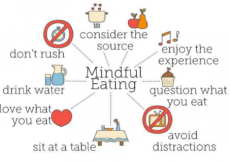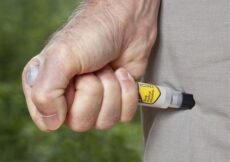June 1st, 2022
Observing Asthma and Allergy Awareness Month last week, we pointed out that despite having a wide array of excellent and convenient options for symptom monitoring and treatment, half of children diagnosed with asthma live with symptoms that are uncontrolled. Pediatrician Riccardo Castagnoli and colleagues describe the challenges uncontrolled asthma poses for children, their caregivers and medical providers:
[T]hese patients and their caregivers face a significant burden, including troublesome persistent symptoms, life-threatening acute attacks, medication side effects, impaired school performance, neuropsychological problems, and lower quality of life (QoL). Moreover, these patients also account for substantially higher healthcare resource use and costs than average patients with asthma.
Asthma is considered “well-controlled” according to these CDC criteria:
• You have symptoms no more than 2 days a week, and these symptoms don’t wake you from sleep more than 1 or 2 nights a month.
• You can do all of your normal activities.
• You have no more than 1 asthma attack a year that requires you to take a pill or liquid for several days to treat the attack.
• Your peak flow, a measurement of how well air moves in and out of your lungs, doesn’t drop below 80% of your personal best number.
• You need to take quick-relief medicines no more than 2 days a week.
A new study published in the British Medical Journal suggests one reason (by no means the only reason) why some kids have trouble with asthma control. British researchers polled 157 children and caretakers and found a sizable majority couldn’t reliably tell when their child’s metered dose inhaler (MDI) was empty. Shawana Alleyne-Morris notes the children were prescribed MDIs for asthma and other chronic lung conditions:
Overall, 125 (73.5%) patients deemed an empty inhaler as either full/partially full. Only three patients used the dose counter and two kept track of each actuation. Twelve of 66 (18.2%) preventer inhalers with a dose counter were empty.
The authors say regulators should mandate dose counters on all inhalers, pharmaceutical companies should improve their educational information regarding identification of empty inhalers, and healthcare providers should include identification of an empty MDI as “part of essential asthma care.”
If an MDI doesn’t have its own built-in dose counter, there are two ways patients and caregivers can keep track of the number of sprays left in a canister. For inhaled corticosteroids and other controller inhalers where the user takes a certain number of puffs every day, find the number of doses in the canister on the label and divide by the number of doses needed each day. (For example, for a 200-dose canister, a person taking 2 puffs twice a day (4 doses a day) will have enough medicine for 50 days.) For rescue inhalers taken on an as-needed basis, users will need to keep count of the number of doses that are left. Although not very convenient, it is the most reliable way to know when to refill the prescription.
Watch videos demonstrating the proper use of a metered dose inhaler with a spacer device here and without a spacer here.
Read more about the diagnosis and management of childhood asthma from Mayo Clinic here.



































